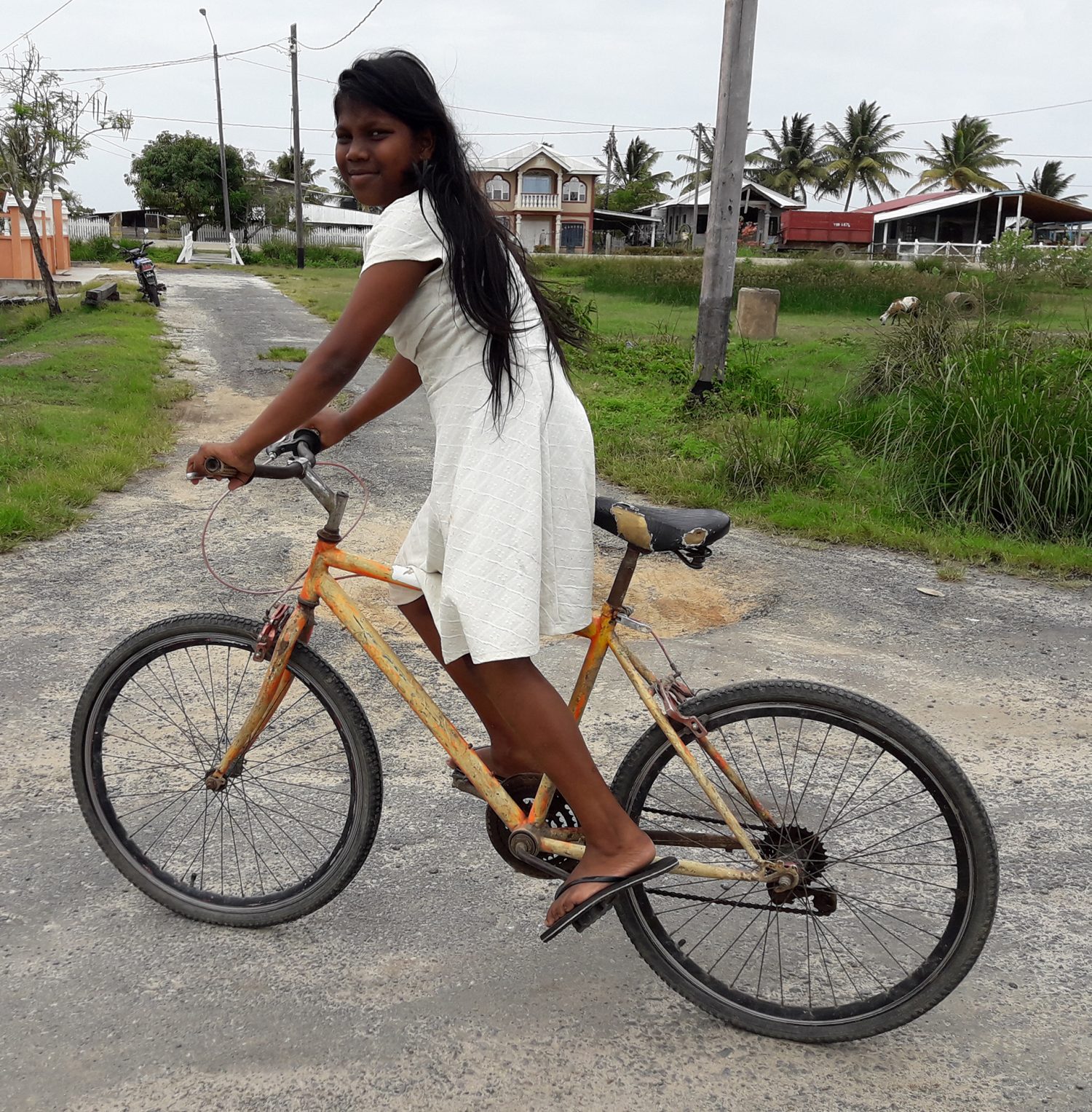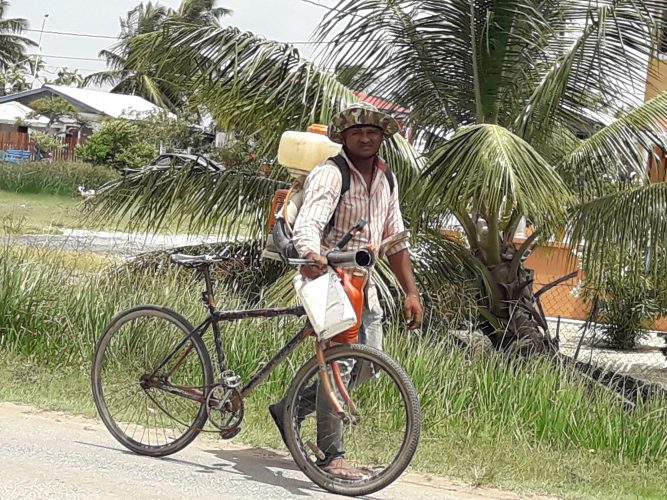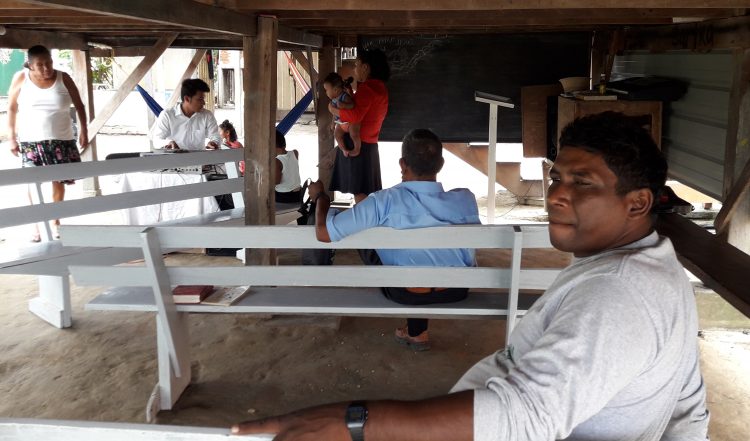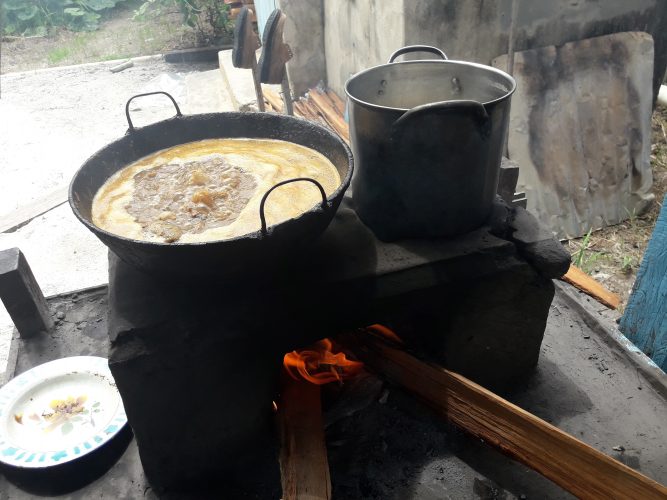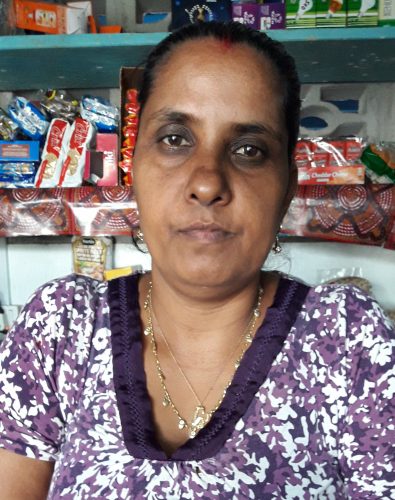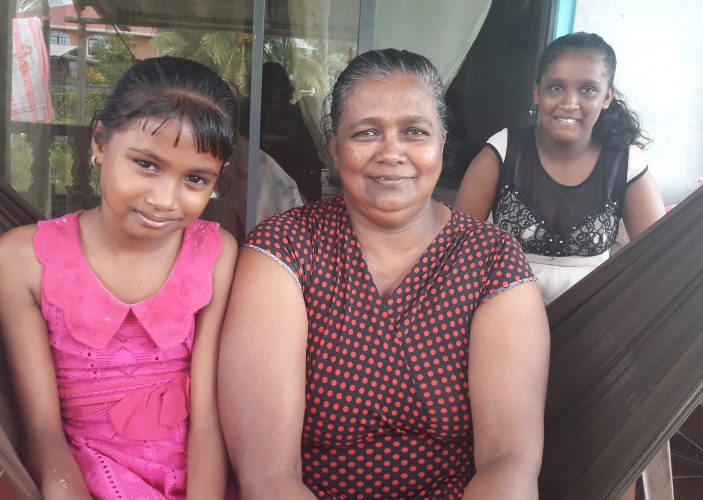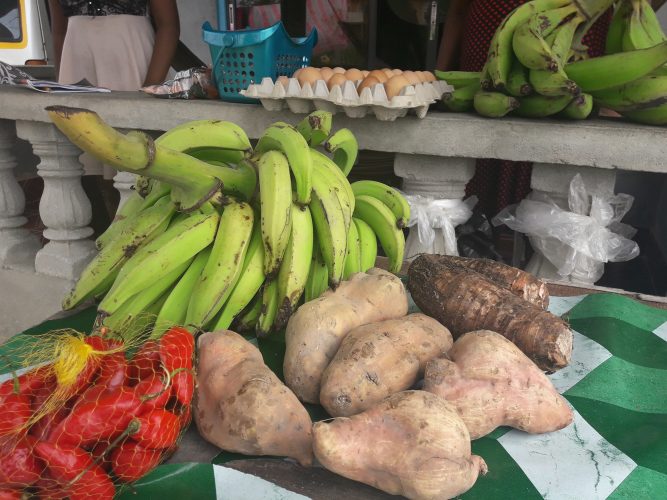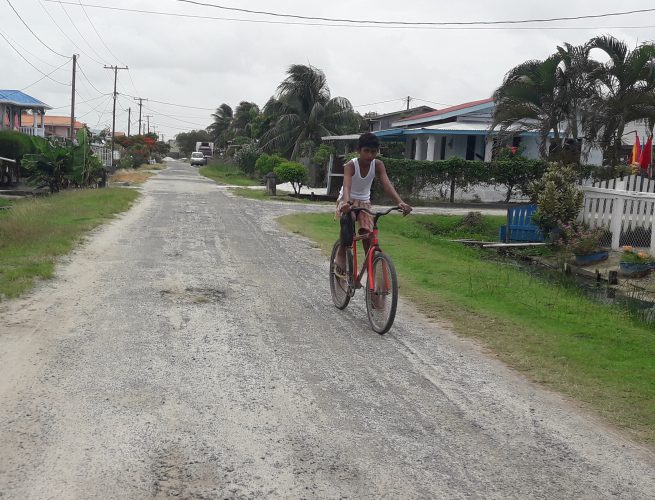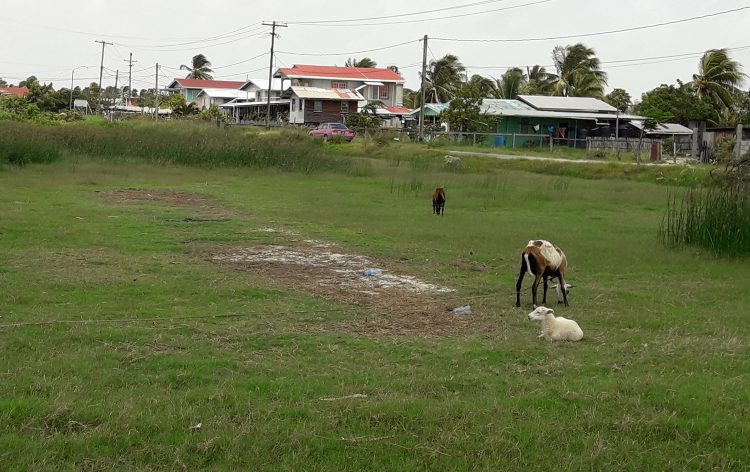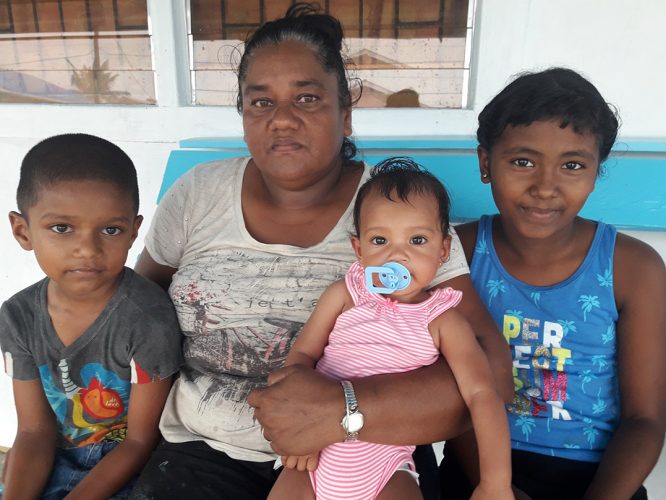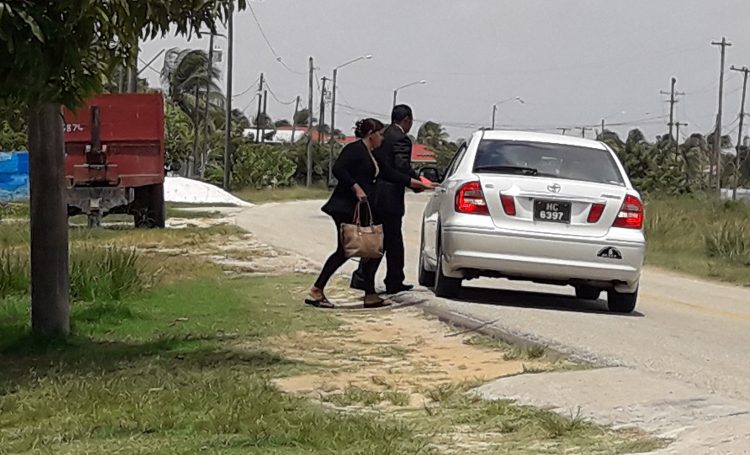The Jib is a peculiar, tiny village situated approximately 28.6 miles from the speedboat jetty at Supenaam and is a haven for its 200-plus residents. The Jib sits on the edge of the borders of Paradise and Exmouth villages.
It was Sunday, a time of church services and children at play. In one yard, two children looked out and smiled shyly before returning to their game. Their cousin, Hassan Ally emerged from inside.
Ally was born in Lima Sands, but has lived in The Jib since he was a baby. His family was one of the few families living along the road until the late 1990s when the scheme was opened.
Most of the men are in the fish industry; others are farmers, labourers, drivers and mechanics. Ally works in the timber industry at Itaballi in the Cuyuni/Mazaruni. There are no schools in the village, he said. There is a nursery school two villages away at Walton Hall, a primary school four villages away in Hampton Court and secondary schools can be found along the coast. The closest secondary school is the 8th of May in Dartmouth, four villages away.
Before Ally took to working in the forest, he lived on sea. He was still in school when he had his first trip out to sea and though he spent only a day, he remembers how hyped he was about getting to do something of importance with grown men. He eventually left school when he turned 14 for a life at sea.
It is inexpensive to live in the Jib, he said, especially when it comes to buying fish. Because the area has a number of fishermen, the catch is always fresh and cheap.
Because it is Ramadan, Ally is at the mosque each night. He shuffles between visiting the masjid in Hampton Court and one in Anna Regina. Although he is a Muslim, one of his major concerns was for the Voice of Faith Miracle Ministry which has a ‘bottom house’ church. It is his desire to see the church provided with a plot of land to have its own building.
His other concern was drainage. It does not flood on his side of the village, but he would like the Neighbourhood Democratic Council to clean the drains on a regular basis to avoid them being clogged with weeds.
Life is peaceful, he said. The people are always on the lookout for each other and despite their religious differences, they do not hesitate to assist each other whenever necessary.
And although the Jib is a charming little village, it is affected by petty crime. This includes persons making off with a sheep or two, poultry animals and sometimes even the laundry left drying outside. Ally has never been affected by this nuisance although he mentioned knowing of such occurrences.
Transportation is not an issue, the man said. The road is always busy; it is only weekends that it would take a while to get a car or bus. A couple who lived two houses away sat for a while on a bench under a tree awaiting transportation; they finally did get a car after some time.
A few houses away along the public road Krishendat Outar tended to her customers at a shop. She is a native of the Jib. Her parents however arrived from different villages along the coast.
“Living in Jib, we feel more safe, compared to the city. We grow up here so we’re all like family,” Outar said.
She said she grew up poor and her life was vastly different compared to the children of today. She and her five brothers walked to the primary school in Hampton Court and when they were old enough they walked to the 8th of May Secondary School in Dartmouth. The walk took them almost an hour to both schools.
“Now is more civilized and developed but the children today are wayward. We see more drugs and cigarettes. Yet they are more better off with all that they have access to,” she said.
The woman said that the people depend mostly on fishing and rice, and since the rice industry has not been profitable, her family plies the fishing trade. This, however, is no smooth road; the family has had to deal with piracy a number of times. “People are scared because of the piracy. We have been affected by this. My brother and my workmen have been beaten and had to hand over everything; you got give them. Then after I have to find back money to get back a boat, a engine, and other supplies. Then my workmen without a job and when they come for things at the shop, I can’t turn them away; they need food for their families,” Outar said.
The woman also said that there isn’t much work for the youths here. Farmers often can only afford to pay two labourers, so many young men are doing nothing. “We can open canning factories and do packaging too. All this will help with the employment rate here. I think the ball field is too small for them to make a playground from, but they could at least make a community centre and teach the young men some trade. They can even have indoor games for them,” Outar proposed.
Naranie (only name) sat in her hammock surrounded by her grandchildren. On a table near her patio she had some provisions and pepper, a tray of eggs sat on a rail – all for sale.
She said she had moved to the Jib close to 20 years ago, when they were digging to make roads. The drains, she said, were clogged with a weed she called ‘Buzy’ and most of the Jib was rice fields. Her house was one of three in her street. Today there are more than 30 houses in her street.
Though she has since cut back, she began selling fish and crabs years ago. Her children who lived with her then attended school in Hampton Court. They have since grown up and moved out to begin their families; only a son remains with her today.
Before she filled the land, Naranie was affected by flooding all the time but this doesn’t happen anymore.
She shares that likes living at the Jib and does not like going to Georgetown one bit. Something urgent has to come up like maybe going to the doctor for her to set foot in the city, she said.
Though most persons get their groceries at the different shops around or would travel once a week or a few times a month to Anna Regina for their ration and their greens, Naranie’s ground provision, eggs and pepper come in handy whenever they are short.
Sabitri Singh lives a stone’s throw away from Naranie in the scheme. She settled in the Jib 15 years ago. She too had to have her land filled to prevent flooding. This came after her family lost the chickens they were rearing along with their kitchen garden to flooding.
Singh said she has never been without of a kitchen garden; today she grows bora, okra, boulanger, pepper, tomato, karilla and calaloo. She rarely purchases greens.
Her husband works as a taxi driver. He once worked out at the sea but not anymore. During his time, she said, they did not have to be afraid of pirates. Today the woman said, “all kind of things happen out at sea.”
She stepped inside to pick up her seven-month-old granddaughter who had been sleeping and was now awake. The child’s mother was busy doing laundry; she is Singh’s daughter.
Next to Singh sat her grandson, Dhoni. He was wet after the rain came down and he had hurried inside to see that the windows were closed. Dhoni lives with her she said. His mother, her older daughter was murdered in 2015 when her drunken husband in a fit of rage during an argument stabbed her 17 times. Dhoni was there. His mother, while being stabbed by her husband, had managed to get the door open in time for him to run out. He still has nightmares, Singh said. He still talks about his mother and even Singh herself broke down recalling the dreadful day.
Her daughter’s killer, who had tried to slit his throat twice, did not die. He was sentenced to 16 years imprisonment. Sixteen years, Singh murmured lamenting that his mother still had a son and she was left without a daughter. Now there are rumours, she said, about him getting out of prison in half the time. “Me own gone. She gone,” she said sadly.
